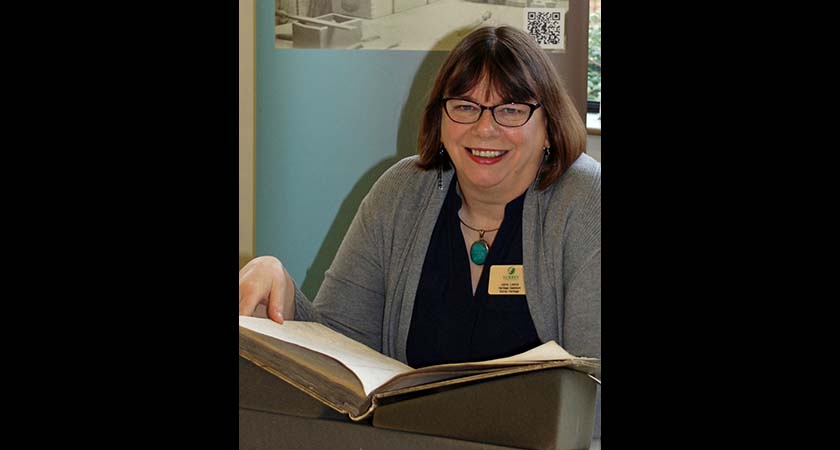1. Start with what you know. It’s amazing what you can find when you start asking around the family, chatting with cousins, searching through boxes of documents, old photos and letters. Don’t discount family stories as these can give you vital clues, although there may be some myths among the truths!
2. Try and establish what religion your family might be. There are different sets of records available to search depending on whether they are Roman Catholic, Church of Ireland etc.
3. Irish records can be very regional so try and establish which county in Ireland your family came from and, if possible, which parish or town land. Don’t forget that Ireland was divided into North and South in 1921. Where your ancestors lived can affect where you search for records.

Jane Lewis, a historian at the Surrey History Centre
5. There are some great resources online for researching Irish family history but many are subscription sites and can be quite expensive. Always check to see if you can find the information for free and, if in doubt, ask an expert.
Centres such as the National Archives in Kew and Surrey History Centre in Woking have free access to Ancestry.com, Find My Past and many more. They also have staff who can advise you on where and how to look for records.
7. Lots of old Irish newspapers can be searched online, particularly through the British Newspaper Archive. This is a subscription site but free at many libraries and record centres including Surrey History Centre.

8. You could join a family history group or subscribe to a genealogy blog site such as Roots Chat.
9. Look out for courses and workshops held locally such as the Celtic Family History Days at history centres across the country.
10. Many records stored in The Four Courts in Dublin were destroyed in a fire in 1922, but many remain- just waiting to be discovered.
 Jane Lewis, a historian at the Surrey History Centre
Jane Lewis, a historian at the Surrey History Centre

